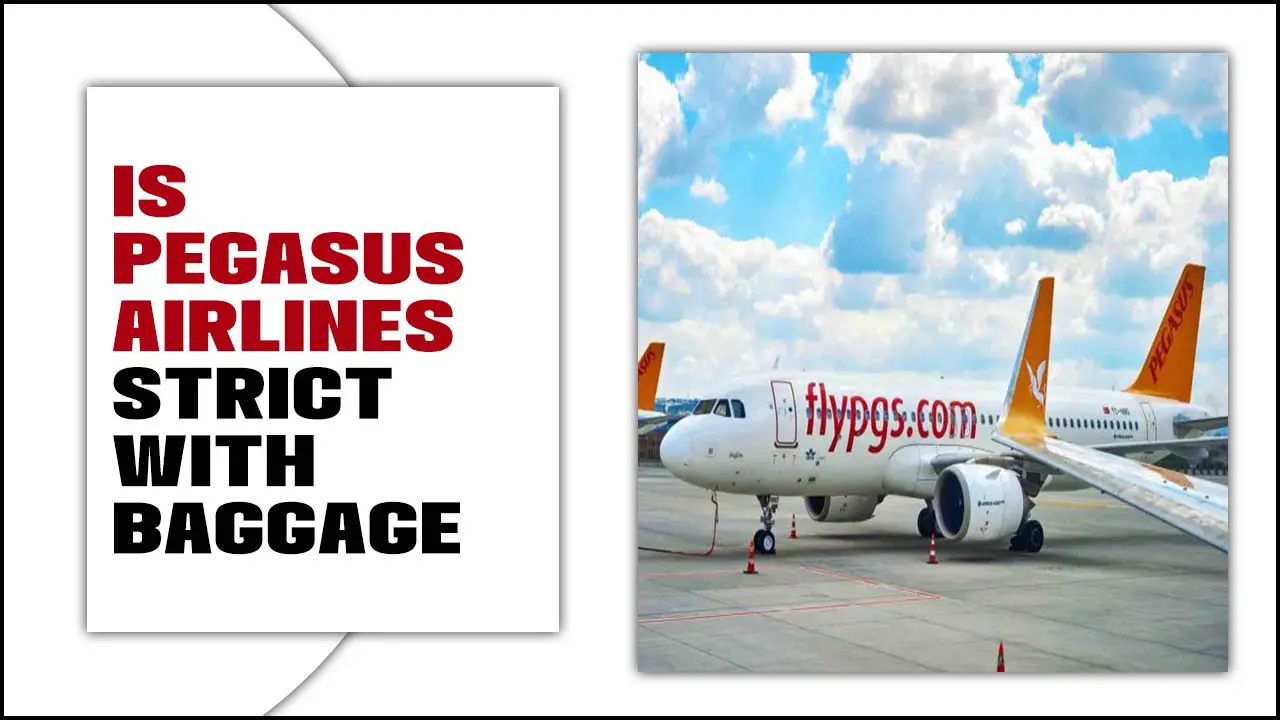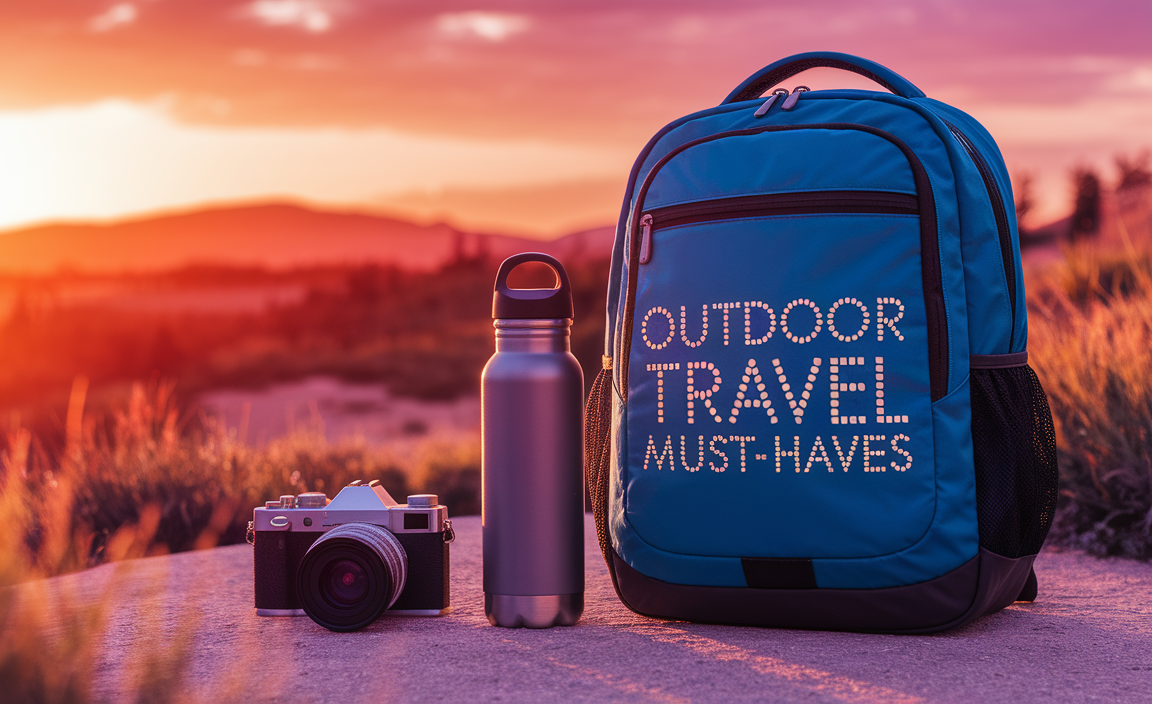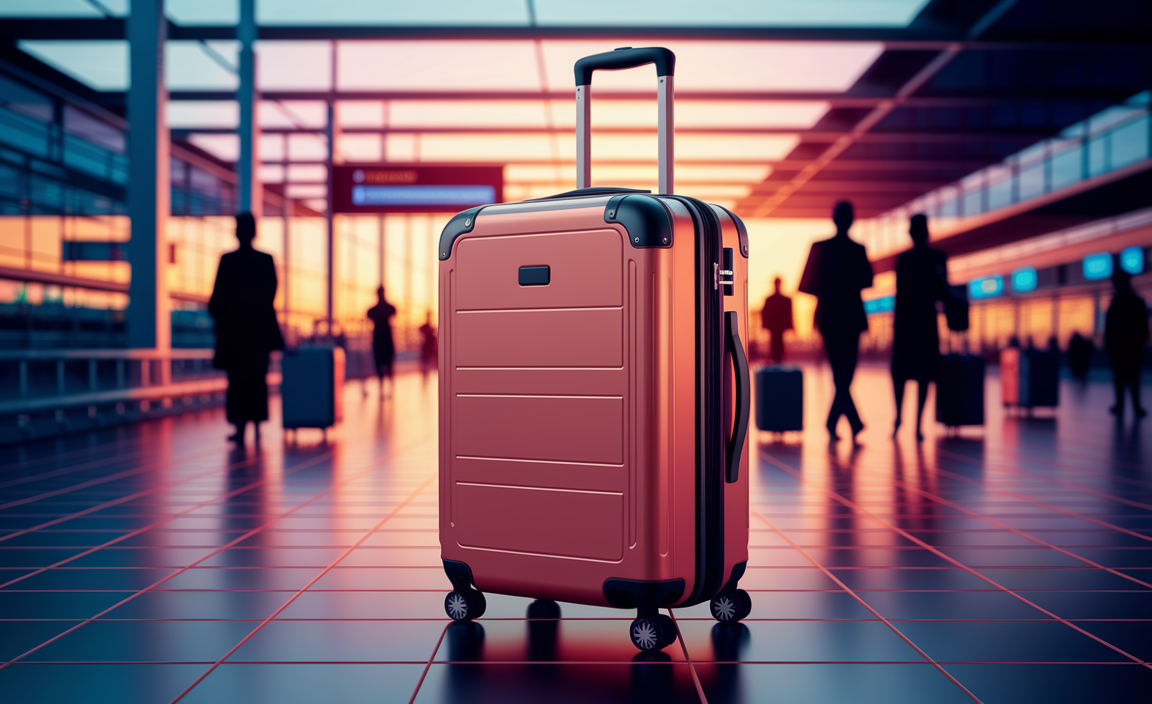As a frequent traveler, you’ve probably seen pilots effortlessly maneuvering through airports with sleek and stylish luggage. But have you ever wondered what type of luggage pilots actually use?
With their extensive experience and knowledge in the aviation industry, pilots know exactly what type of luggage can withstand the rigors of air travel while still being convenient and practical. Here, we dive into the world of pilot luggage and reveal what luggage do pilots use when they’re on the go.
From durable hard-shell suitcases to lightweight and versatile backpacks, we’ll explore the various types of luggage pilots rely on to transport their belongings. We’ll also provide insights into the essential features that pilots look for when choosing luggage, such as durability, weight, storage capacity, and maneuverability.
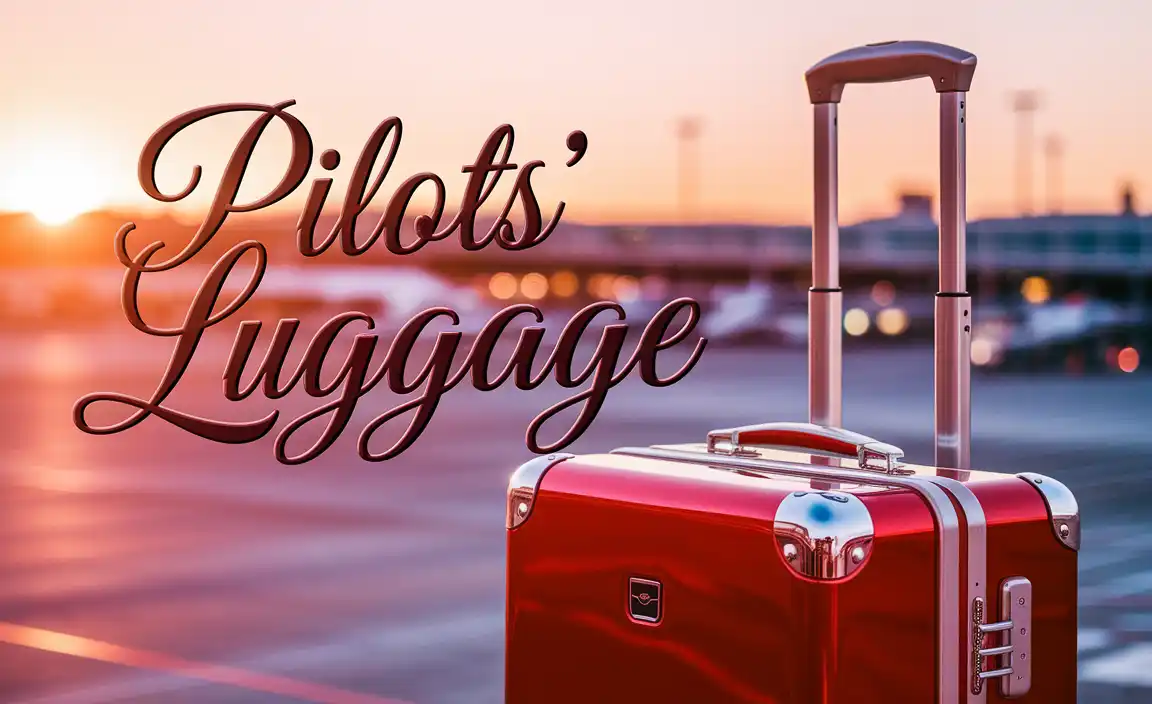
Here’s To Know What Luggage Do Pilots Use For Travel
Regarding travel, what luggage do pilots use? They require bags that are not only durable and reliable but also practical and efficient for their unique travel requirements. Many pilots opt for rolling suitcases or pilot cases with sturdy wheels, as these allow for easy navigation through airports and can hold a significant amount of clothing and equipment.
In addition, they often choose bags with multiple compartments and pockets to keep their belongings organized and easily accessible. Some popular brands among pilots include Travelpro, Briggs & Riley, and Samsonite, known for their durability and functionality. Ultimately, the choice of luggage may vary depending on individual preferences, airline regulations, and personal style.
Features To Look For In Pilot Luggage
When choosing luggage for pilots, there are a few key features to consider. First and foremost, durability is essential. Pilots need luggage that can withstand the rigors of frequent travel and handling. Look for materials such as ballistic nylon or polycarbonate, known for their strength and resilience.
Another important feature is organization. Pilots often carry a variety of items, including uniforms, electronics, and paperwork, so having multiple compartments and pockets can help keep everything organized and easily accessible. Additionally, consider the size and weight of the luggage.
Airlines have specific carry-on and checked baggage regulations, so choosing luggage that meets these requirements is important. Some pilots also prefer wheeled options for ease of transport through airports. By considering these features, you can find the perfect luggage to meet the unique needs of pilots.
Types Of Luggage Used By Pilots
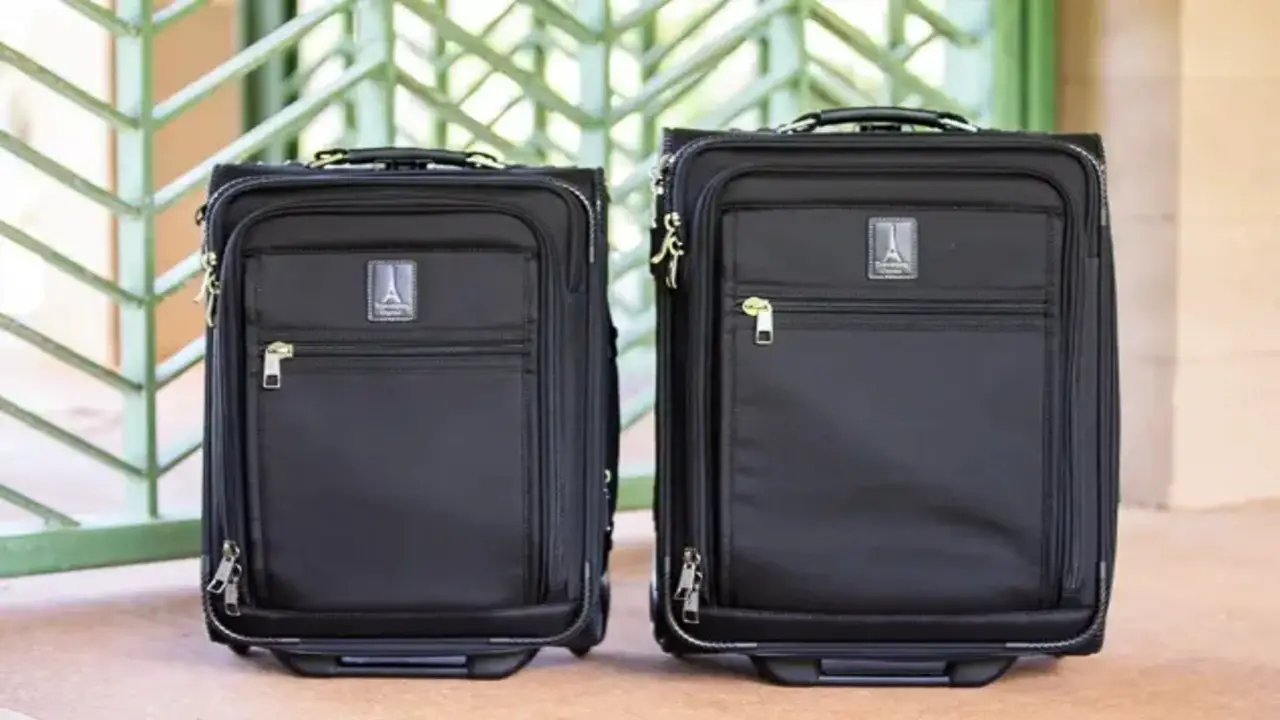
Pilots have specific luggage needs due to the nature of their profession. They require sturdy, durable luggage that can withstand the rigors of frequent travel. Many pilots opt for rolling suitcases with a hard shell to protect their belongings and withstand air travel’s rough handling.
These suitcases typically have multiple compartments and pockets to help keep items organized and easily accessible. Pilots may also use specialized pilot cases or flight bags specifically designed to hold essential documents, navigational charts, and other aviation-related equipment.
These bags often feature multiple pockets and compartments to accommodate the items pilots need to carry on flights. Pilots prioritize functionality, durability, and organization when selecting their luggage to ensure they can efficiently navigate airports and have everything they need while on duty.
Characteristics Of Pilot Luggage
When it comes to choosing luggage, pilots have specific requirements that need to be met. They require luggage that is durable, lightweight, and easy to maneuver. Pilot luggage is typically designed with multiple compartments and pockets to help them stay organized while on the go.
Additionally, it often includes features such as spinner wheels and telescopic handles for smooth navigation through airports. Another important aspect of pilot luggage is its ability to fit within the size restrictions of airplane overhead compartments, ensuring that pilots can easily carry their belongings with them during their travels.
Overall, pilot luggage is designed to meet the unique needs of these professionals, providing them with a reliable and functional travel companion.
Size And Weight Restrictions For Pilot Luggage
When it comes to choosing luggage, pilots have specific size and weight restrictions that they must adhere to. Airlines have strict regulations regarding the dimensions and weight of carry-on luggage that can be brought on board. Generally, pilots will opt for lightweight and durable luggage options that meet these requirements.
They may also prefer bags with compartments or organization features to help them keep their belongings organized during their travels. Additionally, pilots often prioritize bags that are easy to maneuver and can fit easily in overhead compartments or under the seat in front of them.
By selecting the right luggage that meets these criteria, pilots can ensure they are prepared for their journeys while complying with airline regulations.
Best Materials For Pilot Luggage
When it comes to pilot luggage, durability and functionality are key. Pilots need bags that can withstand the rigors of travel and keep their belongings organized and easily accessible. Many pilots opt for luggage made from nylon or ballistic nylon, known for their strength and resistance to wear and tear.
These materials are also lightweight, making it easier for pilots to maneuver through airports and aircraft. Additionally, pilot luggage often features multiple compartments and pockets, allowing them to separate and store their uniforms, electronics, and other essentials.
Overall, choosing luggage made from high-quality materials is essential for pilots who require reliable and long-lasting bags for their travels.
Top Brands Of Pilot Luggage
Regarding pilot luggage, several top brands offer durable and lightweight options for frequent travelers. Brands like Samsonite and Travelpro prioritize functionality and organization, ensuring pilots can easily access their essentials and aviation-related equipment.
On the other hand, Tumi and Briggs & Riley provide stylish and high-quality luggage options for pilots who want both durability and style. These brands understand the specific needs of pilots and offer compartments and storage solutions tailored to their requirements. When choosing pilot luggage, it’s important to consider factors such as durability, size, weight, and TSA-approved locks.
Tips For Choosing The Right Pilot Luggage
When choosing the right luggage for pilots, there are a few important factors to consider. First and foremost, durability is key. Pilots need luggage that can withstand the rigors of constant travel and handling. Look for bags made from high-quality materials, such as ballistic nylon or polycarbonate, known for their strength and resistance to wear and tear.
Another important consideration is functionality. Pilots often have specific requirements for their luggage, such as compartments for organizing their uniforms, shoes, and electronics. Look for bags with ample storage space and thoughtful design features that cater to these needs.
Finally, don’t forget about the size and weight restrictions airlines impose. Many pilots prefer lightweight carry-on bags that comply with airline regulations for cabin baggage. By keeping these tips in mind, you can choose luggage that meets the unique needs of pilots and ensures smooth and efficient travel experiences.
TSA Regulations And Guidelines For Pilot Luggage
When it comes to choosing luggage, pilots have to consider a few important factors. First, they must ensure that their luggage meets the Transportation Security Administration (TSA) regulations and guidelines. Their bags must withstand rigorous security checks and adhere to size and weight restrictions.
Pilots often opt for durable, lightweight suitcases that are easy to maneuver through airports. Additionally, they may choose bags with compartments and pockets to easily organize their essential items such as uniforms, flight documents, and personal belongings. Pilots prioritize functionality and reliability when selecting their luggage to ensure a smooth travel experience while adhering to TSA regulations.
Maintenance And Storage Of Pilot Luggage
Regarding the luggage pilots use, there are a few key factors to consider. First and foremost, durability is essential. Pilots often travel frequently, and their luggage needs to withstand the rigors of constant use and handling. Many pilots opt for hard-shell suitcases or bags made from durable materials like ballistic nylon.
Additionally, organization is a crucial aspect of pilot luggage. Compartments and pockets are important for easy access and storage with various items such as uniforms, flight manuals, and personal belongings.
Finally, size matters. Pilots need luggage that meets airline regulations for carry-on or checked baggage, depending on their needs. Pilots prioritize practicality, durability, and functionality when selecting their travel gear.
Conclusion
Pilots have some great insights when choosing the perfect luggage for your travels. They understand the importance of durability, functionality, and convenience. When selecting pilot luggage, focus on finding a bag that meets size and weight restrictions, is made from high-quality materials, and has features that suit your travel needs.
Consider top brands pilots recommend and ensure you follow TSA regulations for hassle-free travel. Proper maintenance and storage will help prolong the life of your pilot luggage. We have provided bulk information on what luggage do pilots use and hope our information was helpful from your perspective. So, take inspiration from the experts and invest in the right luggage to make your travels smooth and enjoyable.
Frequently Asked Questions
[rank_math_rich_snippet id=”s-82f8e083-ebba-4d99-a62c-88129e2dd555″]


